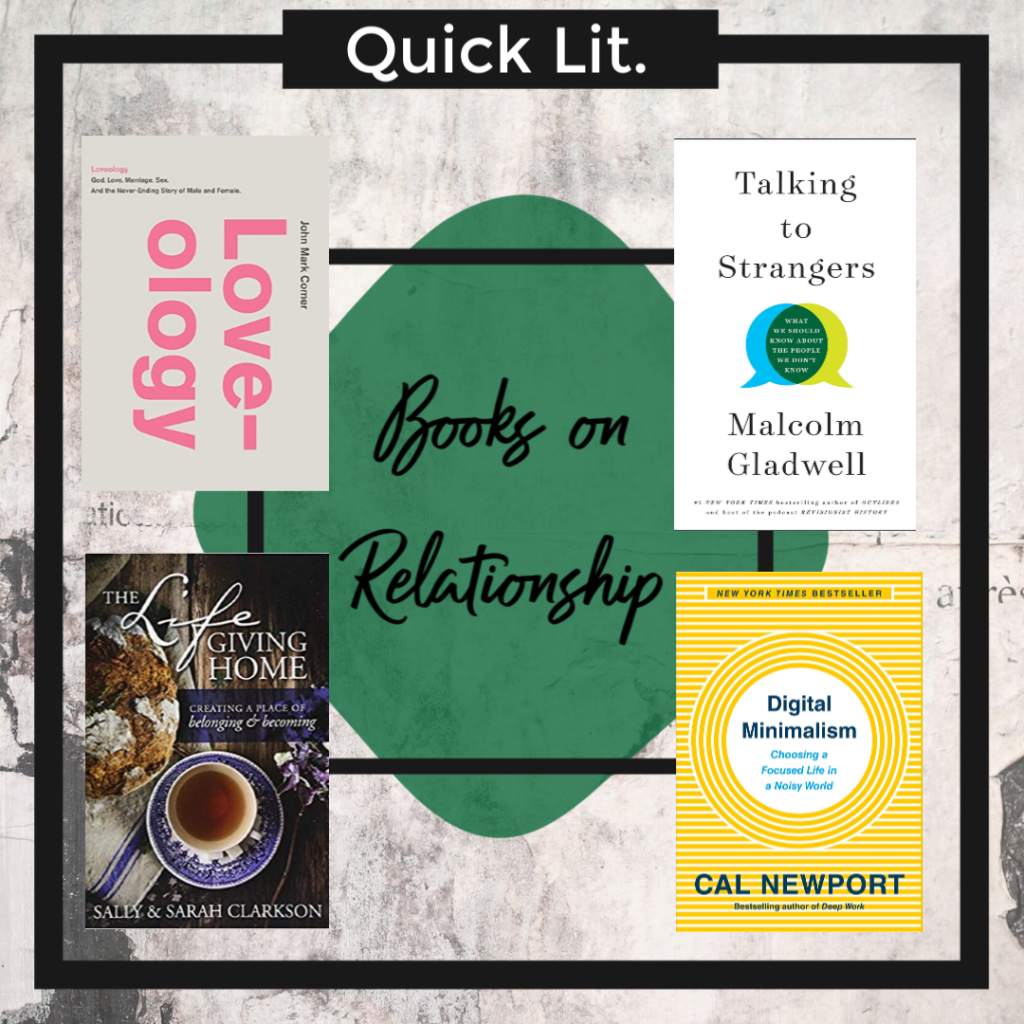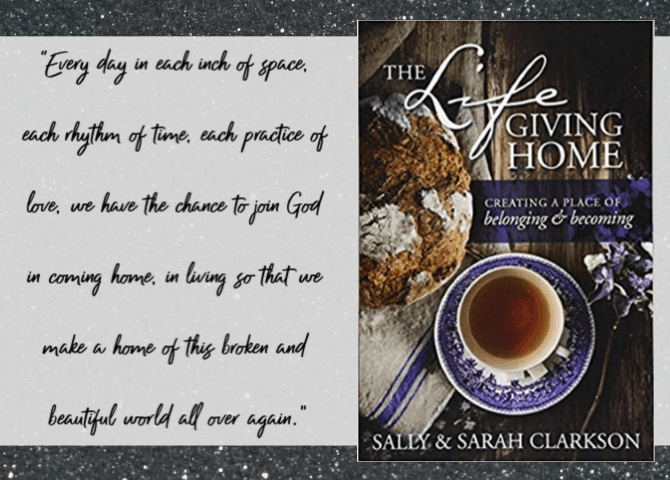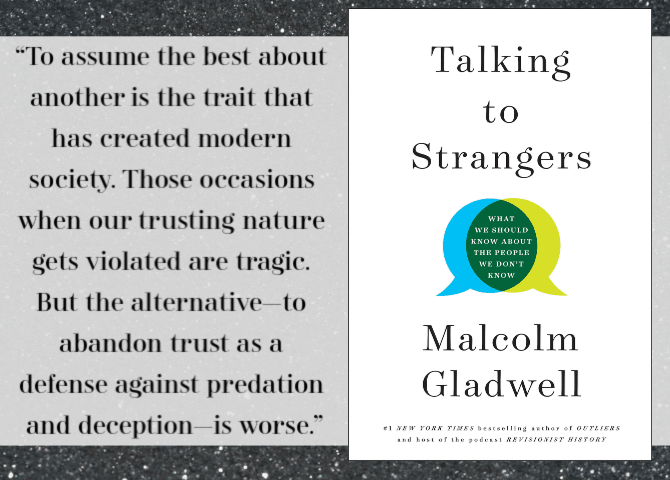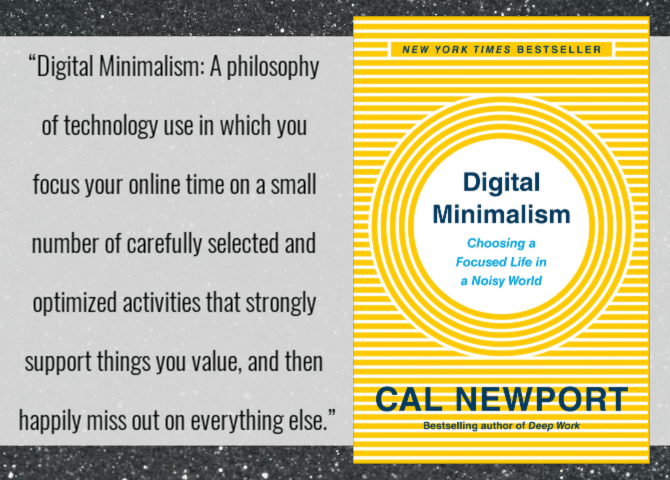The books in today’s batch of reviews are all about relationships—but not necessarily the conventional type!

The Life Giving Home: Creating a Place of Belonging and Becoming, by Sally and Sarah Clarkson: There was a time when family life—all of life, really—centered around the home. Every woman was well-versed in the art of hospitality and in making her house a haven for her family and a place of love, warmth, connection, and renewal. In today’s fast paced world, it’s easy for our homes to serve little function beyond places to eat and sleep. But as a wife, a mom, and a homemaker, I want more from my home. I want it to be a place that breathes life into my family and all who visit. Sally Clarkson has years of experience in creating a life-giving home, and in this book Sally and her daughter Sarah share the practices, rituals, and traditions adopted by their family as they cultivated an environment where the Clarkson family could flourish.
I love the premise of this book, as the art of homemaking is one I would like to learn but that does not always come naturally to me. Sally and Sarah have some wonderful suggestions for traditions and practices I would love to bring to my own family, and I enjoyed seeing how these worked for the Clarkson family. It was especially inspiring to hear Sarah’s perspective as an adult reflecting fondly on her childhood in a “lifegiving home”. The book is organized by month, with the Clarksons sharing specific rituals for each holiday and season, and I found this organization comforting to read and easy to remember and digest.
Despite its merits, I didn’t love this book. Sarah’s writing style in particular is pretentious and paints a picture of her childhood that is a bit too perfect to be believable. I also found the content to be more memoir (“this is what WE did”) and not always relevant to the lives and lifestyles of the reader. I also don’t know that all of the Clarkson traditions—held decades ago—would translate well into today’s busier, technology obsessed homes. While enviable, the Clarkson family culture is more aspirational than attainable and reading about it made me feel slightly discouraged that I may never live up to their idealistic depiction of family and home life.
My Rating: 3.5 Stars.

Loveology: God. Love. Marriage. Sex. And the Never-Ending Story of Male and Female, by John Mark Comer: I’ve heard John Mark Comer on a number of podcasts lately and though it’s not this book that he’s been pushing, I’ve been so impressed with him that I wanted to check out his back catalogue.
In this intriguingly and appropriately titled book, Comer explores various aspects of love: from marriage and dating to gender roles and homosexuality and everything in between. He explores what God intended for each of these scenarios, as described in Scripture, and examines where culture and the church have gotten off track in all of these areas. Woven throughout the text are candid stories from Comer’s own life, particularly his marriage.
This book covers a lot of ground, with each chapter containing enough discussion points for an entire book. However, Comer does a good job of winnowing his topics down to the essentials, providing solid Biblical context for each subject and offering his own insights and opinions. Comer’s writing is engaging and relatable, and he handles some very controversial issues with compassion without watering down the truth. This is a great read for singles, though I learned a lot as a married woman about God’s desires for my relationship. I’m looking forward to reading more of Comer’s books in the future.
My Rating: 4 Stars.

Talking to Strangers: What We Should Know About the People We Don’t Know, by Malcolm Gladwell: Most of us probably assume that we are good at reading others: we know when they are lying and when they are telling the truth, we properly interpret their motives, and we clearly understand what they are attempting to communicate. . . or so we think! But if history is any indication, none of us is as adept at effectively communicating with others as we think we are. In this intriguing book, Malcolm Gladwell uses case studies from history and the present day to prove that miscommunication is rampant. From Chamberlain’s misplaced trust in Adolf Hitler to the wrongful assumption of guilt of Amanda Knox to campus assaults and police brutality—according to Gladwell, all of these are examples of misunderstandings that can occur when we attempt to communicate with strangers.
I enjoy Gladwell’s writing style and am always intrigued by the premises of his books; this one was no exception. He is an engaging storyteller, and the insights he gleans from various studies and historical events are interesting and surprising. However, I had a difficult time following his line of reasoning in this book. While I was kept entertained, I disagree with his attribution of many of these catastrophic events to benign misunderstanding. Gladwell’s arguments are weak, and are not well illustrated by the examples he has chosen to share. It was as though he had a set of stories he wanted to write about and attempted to unite them with a common thread, but the finished product is incohesive and not very persuasive.
I came away having learned more about human interactions and less inclined to trust my instincts about other people, and as with all of Gladwell’s books, I was entertained from start to finish. I especially liked this in audiobook, as the interviews are largely drawn from real footage. However, this is pop science at its least credible, and I would have needed more substantial material to be able to fully embrace this book and the message it attempts to impart.
My Rating: 3 Stars.

Digital Minimalism: Choosing a Focused Life in a Noisy World, by Cal Newport: (This book may seem like an outlier for this category, but I believe it fits. Not only does it relate to what has become one of our most important relationships [our relationships with technology], but this in turn plays into all other aspects of our lives including our relationships with other humans.)
By now, most of us are starting to recognize that while technology—specifically our phones and social media—has its merits, we have all become far too dependent on our devices. We live in a generation of cellphone addiction, yet few of us are bothered by our dependence, let alone making changes to our habits. In Digital Minimalism, Cal Newport (the author who popularized the concept of deep work) makes a persuasive case for minimizing technology in a tech-saturated world.
Newport points out the many ways in which our technology is doing us more harm than good and highlights the benefits being reaped by those who are choosing to live a digital minimalist lifestyle—benefits such as better focus, higher quality relationships, and more fulfilling leisure time. He also offers practical strategies for becoming a digital minimalist, such as removing social media from our cellphones, turning off notifications, and observing a digital sabbath. He provides suggestions for alternative ways to connect with others and access news (reasons many people claim they can’t part with their phones), and offers ideas for how we can spend the time that had previously been drained by our phones.
Very little information in this book was new to me. I’ve read several books and articles on the topic of screen/media addiction, and have experienced the repercussions of this addiction in my own life. However, it was helpful to be reminded yet again of both the why and the how of making changes to my own digital habits. I found Newport’s presentation engaging and succinct and was inspired by his ability to practice what he preaches. I especially loved his approach of changing our technology habits to fit our values and making the most of what we choose to keep (rather than simply getting rid of all technology). I also liked that Newport was not anti-technology but simply opposed to our society’s abuse of devices, social media, and all things tech. I did find some of his suggestions somewhat extreme and unrealistic in today’s world, and I won’t be undergoing a full digital decluttering as he suggests. However, Newport’s message has already prompted me to make some important changes to how—and how often—I use technology in my everyday life.
My Rating: 4 Stars

Have you read any of these books? What did you think?